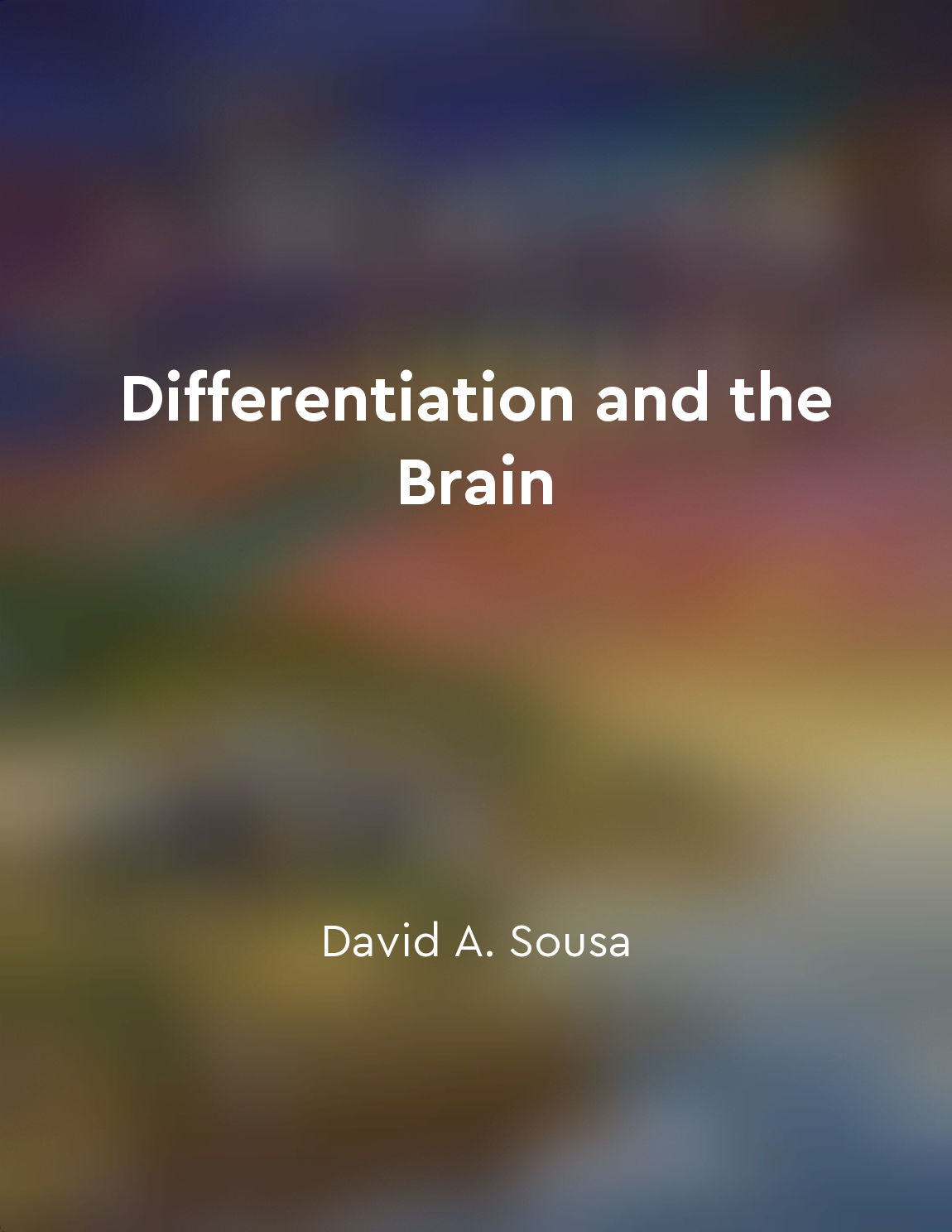Differentiation helps students make connections in their learning from "summary" of Differentiation and the Brain by David A. Sousa,Carol A. Tomlinson
When students are able to see connections between new information and what they already know, their learning becomes more meaningful and lasting. This process of making connections is crucial for helping students not only understand the material but also apply it in different contexts. Differentiation plays a key role in facilitating this process by tailoring instruction to meet the diverse needs of students. By providing varied learning experiences that cater to different learning styles, interests, and abilities, differentiation allows students to approach the same material from multiple angles. This approach enables students to see the same concept from different perspectives, strengthening their understanding and ability to make connections. For example, visual learners may benefit from diagrams or charts, while auditory learners may prefer listening to lectures or discussions. Moreover, differentiation helps students make connections by providing opportunities for them to engage with the material in ways that are personally meaningful. When students are able to relate the content to their own experiences, interests, or goals, they are more likely to see the relevance of the material and make connections to their prior knowledge. This connection to personal relevance not only enhances understanding but also increases motivation and engagement in the learning process. Furthermore, differentiation promotes the development of critical thinking skills by encouraging students to explore multiple perspectives and make connections between different ideas. By presenting information in diverse formats and allowing for different ways of demonstrating understanding, differentiation challenges students to think creatively and make connections across various domains. This process of cognitive flexibility is essential for deepening understanding and fostering higher-order thinking skills.- Differentiation plays a crucial role in helping students make connections in their learning by providing varied learning experiences, fostering personal relevance, and promoting critical thinking skills. By tailoring instruction to meet the diverse needs of students, differentiation enables students to approach the material from different angles, make connections to their prior knowledge, and engage with the content in meaningful ways. This process of making connections not only enhances understanding but also increases motivation and promotes the development of critical thinking skills.
Similar Posts
PBL requires active participation from students
Problem-based learning is a teaching approach that places students at the center of the learning process. In order for PBL to b...

Adjusting instruction based on student needs is a crucial part of differentiation
To effectively differentiate instruction, educators must have a deep understanding of their students' individual needs. This re...

Understanding students' strengths and weaknesses is key to differentiation
To effectively differentiate instruction, educators must have a deep understanding of their students' individual strengths and ...
Harnessing the power of visualization
Visualizing is an incredibly powerful tool for learning. When we harness the power of visualization, we are able to create ment...
Engaging in discussions and debates about the material enhances understanding
When we engage in discussions and debates about the material we're trying to learn, we're forced to actively retrieve the infor...
Challenge conventional beliefs
The idea of questioning established norms and beliefs is a fundamental aspect of independent thinking. It involves challenging ...

